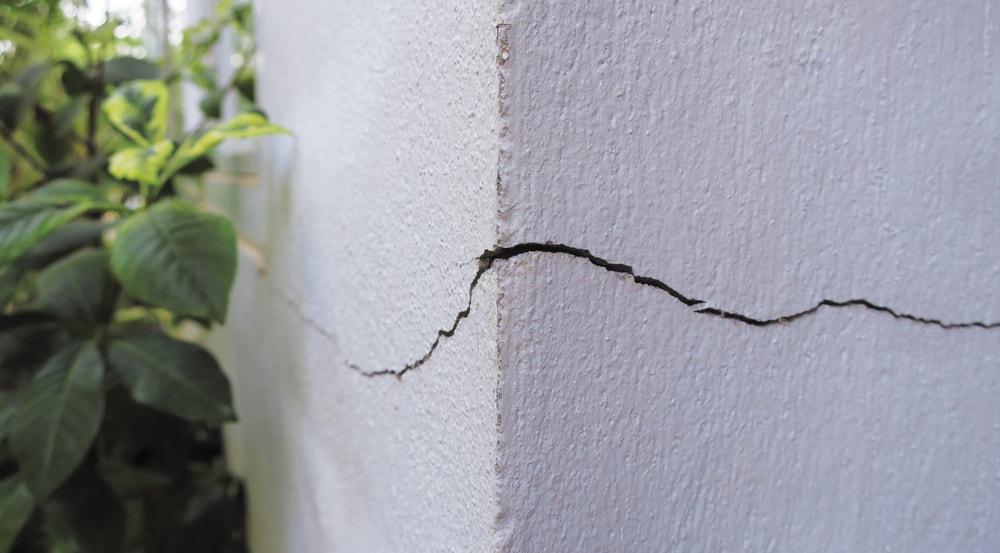Signs of foundation issues | Home inspection | Is it safe to live in a house with a bad foundation? | Homeowners insurance | Mortgage options | Cost to repair a bad foundation | When to walk away from foundation issues
We strive to provide objective, independent advice and reviews. When you decide to use a product or service we link to, we may earn a commission.
Foundation problems can sound serious— and they usually are. Even if they’re in the early stages, and can be easily repaired, a faulty foundation can complicate your financing and homeowners insurance.
If you love the home, and the problems aren’t advanced, you can often negotiate with the seller to either lower the sale price, or put money aside for the repairs, a process called “repair escrow.”
However, not all lenders allow repair escrow, and many mortgages won’t approve the purchase of a home with foundation problems. So while it’s okay to pursue a home with foundation problems, many buyers will quickly find out it’s more trouble than it’s worth — if they can close the deal at all.
7 Signs of Foundation Issues
While you can probably eyeball a house with foundation issues, a precise, accurate diagnosis is going to require a foundation professional.
With that in mind, here are some signs of foundation problems that you can look for:
- Sagging, slanted, or rippling floors
- Crooked window frames and door frames
- Doors and windows that stick or won’t close properly
- Walls with cracks, especially cracks around doors and windows
- Concrete floors with sizable cracks or fissures
- Basements walls that are bulging, crumbling, or feature horizontal (side-to-side) cracks
- Excessive moisture or the presence of mold in the basement/crawlspace
Any one of these signs may not be conclusive proof of foundation problems, but if you see multiple signs, foundation problems are more likely.
Settling vs. Foundation Damage
House settling is a natural process that can cause small cracks or other surface disturbances in your home, and is nothing to worry about. It’s normal for a foundation to settle up to one inch, and most foundation slabs are built to accommodate up to four inches; the resulting hairline cracks due to settling are only a cosmetic disturbance. They’re easy to fill in or cover up, if you don’t like the way they look.
However, larger cracks can be a sign of serious foundation problems beyond settling. If you think you may have serious foundation problems, you should contact a professional for an assessment. However, you can use these numbers as a rough guide:
- Negligible to Slight: Hairline to ⅛ inch
- Moderate: 3/16 inch to 9/16 inch
- Severe: 9/16 inch to 1 inch
- Very Severe: over 1 inch
Will a Home Inspection Cover Foundation Problems?
A general home inspection is just that— general. It takes a quick look at a whole list of items, one of which is the foundation. A home inspector will probably notice major problems, but won’t have the specialized expertise necessary to diagnose many foundation problems, especially if they’re in their early, hard-to-detect stages.
Guidelines from the American Society of Home Inspectors (ASHI) state that home inspectors are required to “inspect” and “describe” the foundation, but aren’t required to “provide engineering … analysis” or “offer an opinion about the adequacy of structural systems and components.” This means that even if a home inspector sees a potential problem with your foundation, they’re not required to tell you about it.
If you have concerns about a home’s foundation, you should hire a structural engineer or a similar specialist to evaluate your foundation’s integrity.
Is It Safe To Live In A House With Foundation Problems?
It’s typically safe to live in a home with foundation issues. Cracks in the foundation, even ones an inch or larger, typically aren’t a sign that the home is going to physically collapse.
The main danger associated with foundation problems is that they’ll steadily erode your home’s value. Like a leaky roof, unaddressed foundation problems can cause a domino effect of damage to the rest of the house, as floors and walls are warped, and windows and doors lose their functionality.
Again, if you have serious concerns about your foundation’s safety, consult with a specialist like a structural engineer.
Can You Get Homeowners Insurance with Foundation Problems?
Since you need homeowners insurance to acquire a mortgage approval, this is a very important question.
In order to get homeowners insurance for a home with a faulty foundation, you’ll need to make repairs. In the meantime, many insurance companies will give you a homeowners policy if you agree to make the needed repairs within a certain period of time. Alternatively, you can cover the home with a risk policy. This is more expensive than the standard homeowners policy, so be sure to change plans once you’ve done repairs.
Just keep in mind that homeowners insurance usually only covers damage that comes from covered risks above the slab— for example, fire or flood. So if the condition of your foundation worsens, the damage that results likely won’t be covered by your homeowners insurance.
Can You Get a Mortgage on a House With Foundation Issues?
If the home has serious structural issues, lenders likely won’t approve a mortgage. That’s the bad news.
The good news is that you have multiple options for how to pay for repairs.
Negotiate with the Seller
If you’re in a buyer’s market, the seller may be willing to fix the foundation to keep the deal on track.
One way to do this would be through repair escrow, also known as escrow holdback. In this scenario, the seller puts money into an escrow account to pay for the needed repairs, which the buyer is responsible for carrying out. A repair escrow requires the buyer and seller to agree to a detailed repair plan that includes a timeline in which the repairs must be performed; this agreement is usually drawn up by the title company.
After closing, the buyer has a specific amount of time to use the money on the agreed-upon repairs. Once the repairs are complete, the money in the repair escrow account is released.
Mortgages for Distressed Properties
You could also opt for a mortgage designed for distressed properties.
FHA 203K is U.S. government-backed rehab mortgage insurance that allows a buyer-occupant to purchase a home and pay for its repairs with a single, long term, fixed or adjustable rate mortgage.
Another option is the Fannie Mae Homestyle Renovation loan, which gives buyers “funds for a wide range of renovation projects, from repairs and energy updates to landscaping and luxury upgrades.” This loan is extremely flexible and can be used on any renovation project.
These options do come with some drawbacks: the FHA loan comes with higher closing costs and fees, and the Fannie Mae loan has a higher minimum credit score requirement. Using them may also lengthen your closing timeline, since more paperwork will be required, and that’s if you can find a lender who offers the above options — many lenders do not.
How Much Do Foundation Repairs Cost?
The average cost of foundation repairs is $2,145 – $7,509, according to recent data from HomeAdvisor.
That’s a wide price spectrum because a lot of your costs will depend on the specific type of damage that your foundation that’s been sustained, how large your home is, where you live, and the type of repair that’s needed. Larger homes with more severe damage will be more expensive than smaller ones with less serious damage.
However, if you have issues with your foundation, you shouldn’t be put off by the price tag. The longer your foundation problems continue, the more damage that will be done, and the more value your home will lose. And when you do eventually decide to do repairs, they’ll be that much more expensive and time-consuming.
Costs for Common Foundation Repairs
Bottom Line: Should You Buy A House With Foundation Repair?
| ✅ Pros | ❌ Cons |
|---|---|
|
|
Buying a home with a bad foundation could make sense if you’re a cash buyer who can aggressively negotiate a lower price, and can pay for the repairs — this is where the assistance of a skilled, experienced real estate agent could come in handy. This assumes the foundation problems are minor; if the issues are advanced, this is a much harder case to make, even if you get a sizable discount.
When to Walk Away from Foundation Issues
There are some circumstances in which you should definitely not buy a home with foundation problems.
- If you have an FHA or VA loan, these mortgages have strict requirements on the condition of the home you’re buying.
- If your lender doesn’t allow repair escrow, preventing the seller from paying for the repairs.
- If you need to move into the home ASAP for a new job or children’s school, and you don’t have time to wait out a lengthy, complicated repair.
In the above circumstances, you should walk away, and keep looking for your dream house. Your home should give you safety and stability, and it may be hard to achieve that if you’re living on a shaky foundation.
Recommended Reading
FAQs
Is it safe to live in a house with foundation problems?
It’s typically safe to live in a home with foundation issues. Cracks in the foundation, even ones an inch or larger, typically aren’t a sign that the home is going to physically collapse. The main danger associated with foundation problems is that they’ll steadily erode your home’s value. Learn the cost of common foundation repairs.
Should I buy a house with foundation repair?
In general, it’s not a good idea to buy a home with foundation issues if you can’t afford to wait for repairs. Additionally, your mortgage might limit your options. If you have an FHA or VA loan, you’ll have to meet strict requirements for the condition of the home you’re buying — and while some lenders allow repair escrow, not all do. Learn when to walk away from a house with foundation issues.



